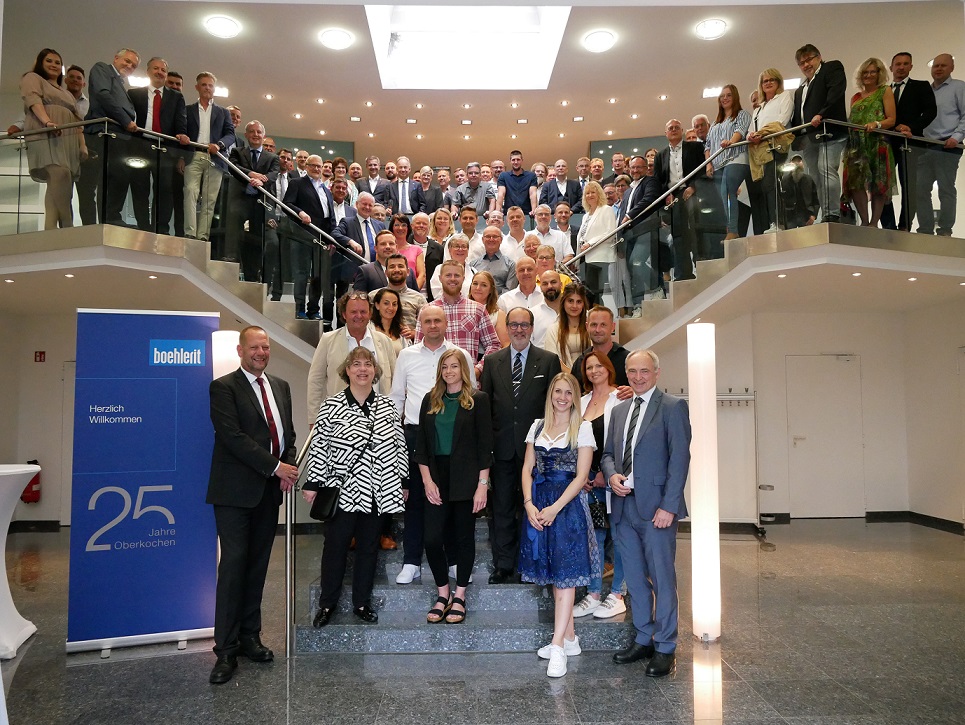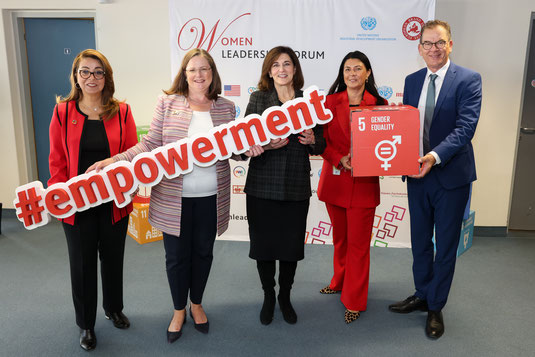A Leitbetriebe interview with Michael Otter, CEO of ADVANTAGE AUSTRIA, the international trade unit of the Austrian Economic Chambers.
Leitbetriebe Austria: What role can Austria play within the general picture of globalisation and internationalisation? And how is this changing the Austrian economy?
Michael Otter: Austria is open to foreign trade and profits enormously from its international business activities. So, it’s important that we don’t respond to the coronavirus crisis by retreating into our shells and only looking inwards at our own domestic market. We clearly need to rethink export strategies, but we also need to consider the importance of foreign trade. To give you an idea of how vital foreign trade is for Austria, it’s important to note that every other job in our country depends either directly or indirectly on exports. Our companies have always defined themselves in terms of innovative and high-quality products and services underscored by the ‘made in Austria’ seal of quality. I feel optimistic about the future because quality will always be in demand – even during difficult times. So, I don’t think that our many hidden champions will be displaced.
It’s often the case that strong exporters are among the hidden champions in Austria. Why do you think there is a connection?
The answer is quite simple: good quality speaks for itself. Austria’s businesses – especially SMEs – are important players in various niche industries. Austrian companies have reached high levels of success thanks to their exceptional performance in research, design, production and engineering. We can no longer view these achievements on a separate national level because competition now exists on an international scale. This is why our companies are very quickly achieving success beyond our own borders.
Austrian companies are frequently part of an international – and often digital – supply chain. What kind of impact does this environment have on companies and what kinds of activities and benefits does this involve?
Our companies are often suppliers and are therefore part of international supply chains. The coronavirus crisis has shown us that we need to rethink many things – including export. Supply chains can be volatile and vulnerable due to their complexity. And because we have recently experienced the full impact of supply chain disruption, we need to ask important questions such as: how can we structure supply chains to make them more resilient, which will then make the Austrian economy more resilient too? What role is digitalisation playing in all of this? The restructuring of post-COVID-19 supply chains is actually presenting us with a huge opportunity. A recent McKinsey study concluded that companies all over the world may move up to one quarter of their production to different countries over the next five years. This could involve goods valued at up to 4.6 trillion US dollars, which equates to one quarter of all global exports traded in 2018.
Manufacturing companies are especially dependent on international suppliers. What is your assessment of the current situation?
From our point of view, global partnerships are still the best way to withstand any crises that come our way. The key question to ask is as follows: which advantages does my specific location offer and how can I strengthen and develop these advantages? Nowadays, every production facility is dependent on – usually just a few – suppliers and customers. As soon as the supply chain is disrupted, the machinery comes to a standstill. Even though efficiencies could be gained through specialisation, globalisation, outsourcing production and reducing stocks, this came at a price because it meant that the economic system became less resilient.
This is why there is also a sharper focus on nearshoring and why companies are turning their backs on single sourcing concepts. To avoid similar shocks, such as the one we have experienced due to the coronavirus, it is important that companies become more resilient and strengthen their strategic supply chains, which means they should cast a wider net when it comes to their choice of suppliers.
Over the past 40 years – except during the 2008/2009 financial crisis – Austria’s foreign trade has consistently grown and in some cases quite sharply. Can we expect another downturn in 2020 due to the coronavirus crisis?
Last year, we achieved record-breaking export earnings of over 150 billion euros. We have adjusted our expectations for 2020, which has obviously turned out to be a completely unprecedented year. We naturally do not expect to see growth under the current circumstances. However, we believe that the biggest downturn is behind us. Important partner countries, such as China and Germany, are also recovering faster than expected. This now means that we need to get our foreign trade back on the road to success as quickly as possible. As a small, export-focused country, 6 out of every 10 euros made in Austria comes from exports.
What do you think needs to happen to ensure that the economic recovery that we are hoping for takes place in 2021? What kind of support do Austrian companies need to receive?
There will be a stronger focus on supply networks instead of supply chains in the future. Because if one link in the chain breaks, then the whole chain is disrupted. Networks, on the other hand, are considerably more resilient. We will also be focusing on reshoring and nearshoring in certain key sectors to discover what this would look like and how much sense it would make.
ADVANTAGE AUSTRIA helps companies tap into new markets, in order to exploit new opportunities and become more resilient. Only last year, we opened a new ADVANTAGE AUSTRIA Centre in Vietnam, which is definitely a promising market. The fact that Vietnam is still anticipating economic growth despite the pandemic shows that our decision to go there was a good one.
We are experimenting with new formats and trying wherever possible to conduct business digitally. We are using the Austrian Economic Chambers (WKÖ) Export Radar which is an important tool that shows where each country lies on the digital readiness scale. This helps our companies to identify the markets where it is easiest to develop business links through digital means.
Services are playing an increasingly important role in export. How do you see the relationship between the trade of goods and services from Austria and what do you think the future holds?
In terms of goods, Austrian firms have in the past generally been more well integrated into international supply chains: 7 out of every 10 euros made from exports are from goods, compared with 3 out of every 10 from services. This tells us that goods exports have become even more important over the last 30 years – in 1990, 4 out of every 10 export euros were made from services. However, we shouldn’t underestimate the importance of trade in services, particularly as it serves as a buffer amidst a crisis. During the two previous severe crises, trade in services has not contracted as sharply as trade in goods. However, due to the sharp downturn in times of crisis, the trade in goods grows much more quickly than the trade in services.






